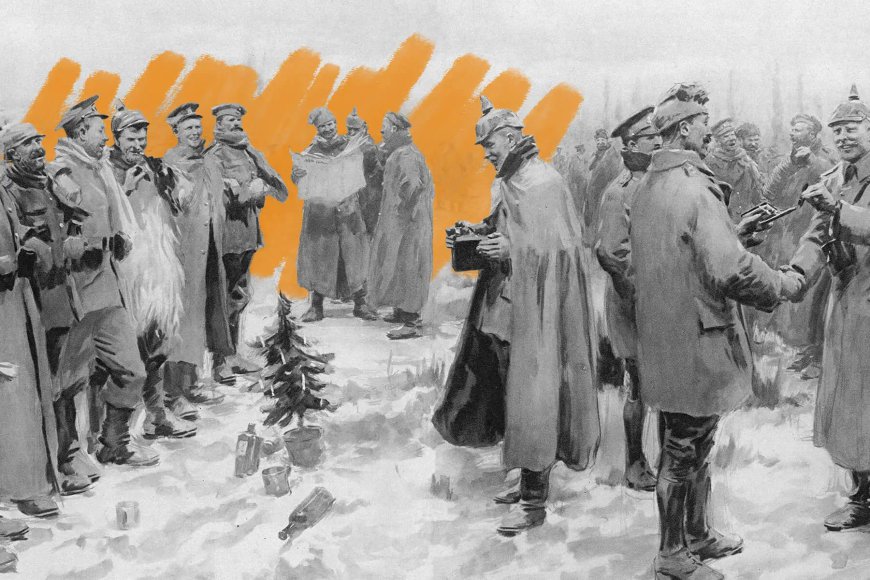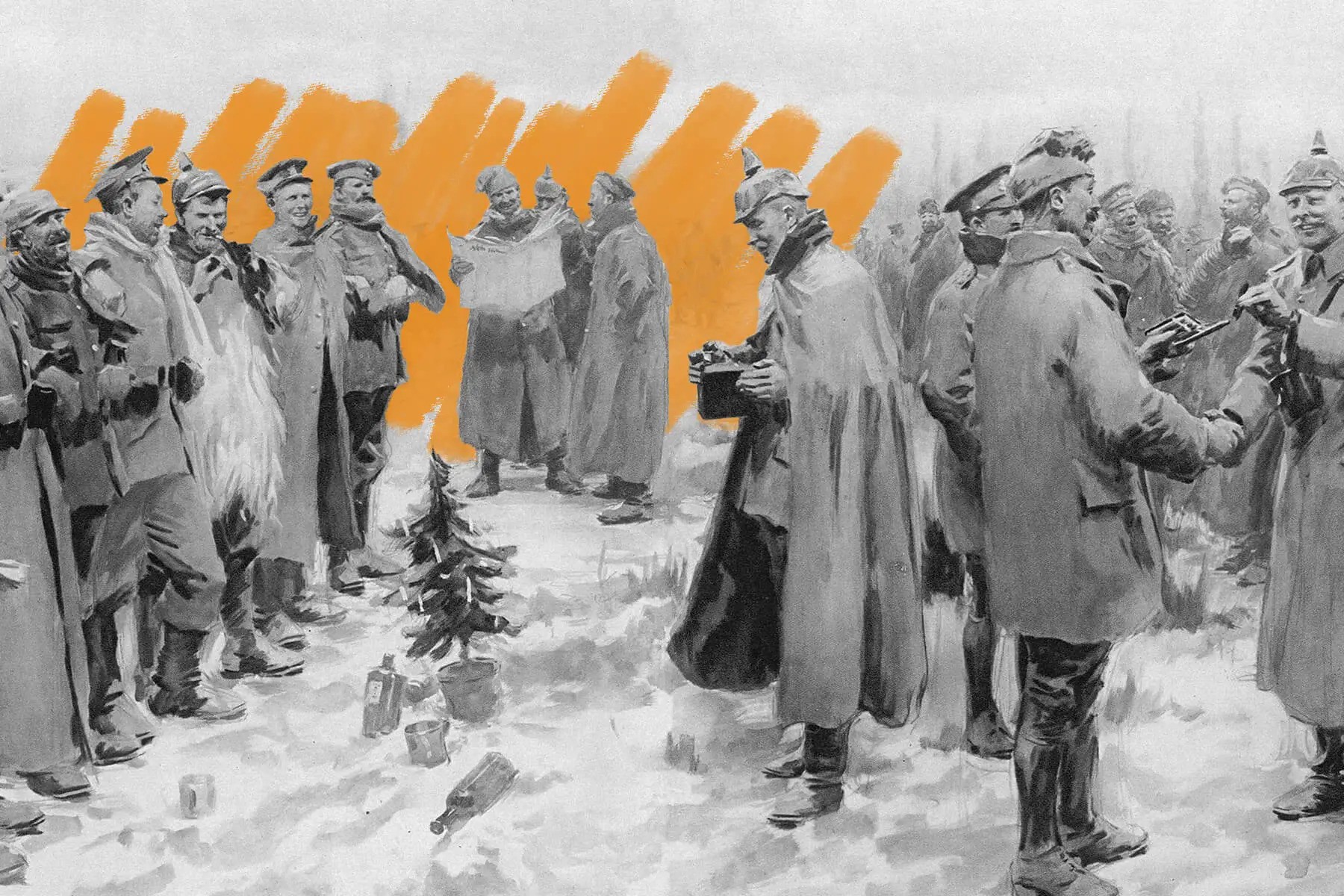World War I soldiers paused fighting on Christmas to celebrate together.
Peace on Earth is a common wish during the Christmas season, and for a short time during World War I, it actually came true. In December 1914, Allied and German troops had been mired in the brutal conditions of trench warfare on the Western Front for months. Pope Benedict XV had tried and failed to facilitate a temporary Christmas ceasefire, and morale on the front lines was low. Then, on Christmas Eve, an odd sound rang out across the battlefield: German soldiers were singing carols. British soldiers sang back, and soon, men from both sides cautiously ventured into the no man’s land between their lines. Although spontaneous, it was a ceasefire after all. What followed between the soldiers was nothing short of extraordinary: They exchanged handshakes, wine, cigarettes, and laughs. Records including soldiers’ diaries and letters also describe fir trees glowing with candles lining German trenches; other accounts describe impromptu games of a ball being kicked around, although it’s likely that tales of full-fledged soccer games between enemy soldiers have been exaggerated over time. The truce, though widespread, wasn’t universal: It’s estimated that about two-thirds of the stationed troops, or around 100,000 people, participated, and commanders on both sides ultimately discouraged the fraternization, worried it would undermine the war effort. It didn’t last all that long, either. In some areas, the fighting resumed by Christmas night; in others, the spontaneous spirit of peace stretched into the following days. Source: https://historyfacts.com

 Peace on Earth is a common wish during the Christmas season, and for a short time during World War I, it actually came true. In December 1914, Allied and German troops had been mired in the brutal conditions of trench warfare on the Western Front for months. Pope Benedict XV had tried and failed to facilitate a temporary Christmas ceasefire, and morale on the front lines was low. Then, on Christmas Eve, an odd sound rang out across the battlefield: German soldiers were singing carols. British soldiers sang back, and soon, men from both sides cautiously ventured into the no man’s land between their lines.
Although spontaneous, it was a ceasefire after all. What followed between the soldiers was nothing short of extraordinary: They exchanged handshakes, wine, cigarettes, and laughs. Records including soldiers’ diaries and letters also describe fir trees glowing with candles lining German trenches; other accounts describe impromptu games of a ball being kicked around, although it’s likely that tales of full-fledged soccer games between enemy soldiers have been exaggerated over time.
The truce, though widespread, wasn’t universal: It’s estimated that about two-thirds of the stationed troops, or around 100,000 people, participated, and commanders on both sides ultimately discouraged the fraternization, worried it would undermine the war effort. It didn’t last all that long, either. In some areas, the fighting resumed by Christmas night; in others, the spontaneous spirit of peace stretched into the following days.
Source: https://historyfacts.com
Peace on Earth is a common wish during the Christmas season, and for a short time during World War I, it actually came true. In December 1914, Allied and German troops had been mired in the brutal conditions of trench warfare on the Western Front for months. Pope Benedict XV had tried and failed to facilitate a temporary Christmas ceasefire, and morale on the front lines was low. Then, on Christmas Eve, an odd sound rang out across the battlefield: German soldiers were singing carols. British soldiers sang back, and soon, men from both sides cautiously ventured into the no man’s land between their lines.
Although spontaneous, it was a ceasefire after all. What followed between the soldiers was nothing short of extraordinary: They exchanged handshakes, wine, cigarettes, and laughs. Records including soldiers’ diaries and letters also describe fir trees glowing with candles lining German trenches; other accounts describe impromptu games of a ball being kicked around, although it’s likely that tales of full-fledged soccer games between enemy soldiers have been exaggerated over time.
The truce, though widespread, wasn’t universal: It’s estimated that about two-thirds of the stationed troops, or around 100,000 people, participated, and commanders on both sides ultimately discouraged the fraternization, worried it would undermine the war effort. It didn’t last all that long, either. In some areas, the fighting resumed by Christmas night; in others, the spontaneous spirit of peace stretched into the following days.
Source: https://historyfacts.com

 newsroom
newsroom 







